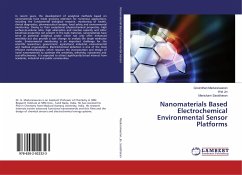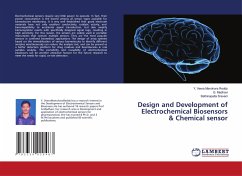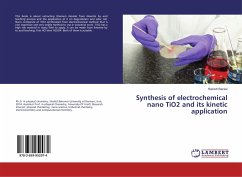In recent years, the development of analytical methods based on nanomaterials have made growing attention for numerous applications, including the fundamental biological research, monitoring of health, clinical diagnostics, pharmaceutical analysis, food safety and environmental monitoring. Owing to their exceptional physicochemical properties, high surface-to-volume ratio, high adsorption and reactive capacity and other beneficial properties not present in the bulk materials, nanomaterials have serve as potential analytical probe which not only offer enhanced sensitivity but also provide a stair change to analysis the single molecular realm. Environmental monitoring is an important challenge for the scientific researchers, government, agricultural, industrial, environmental and medical organizations. Electrochemical detection is one of the most efficient methodologies, which requires the incorporation and design of novel nanomaterials to optimize the sensitivity, selectivity, robustness and cost-effectiveness. It is expected to attract significantly broad interest from academic, industrial and public communities.
Bitte wählen Sie Ihr Anliegen aus.
Rechnungen
Retourenschein anfordern
Bestellstatus
Storno








